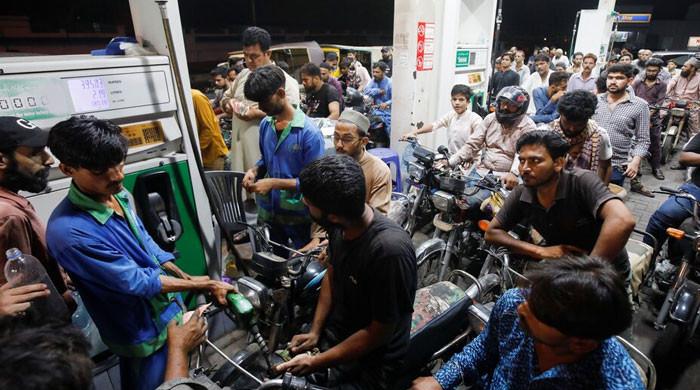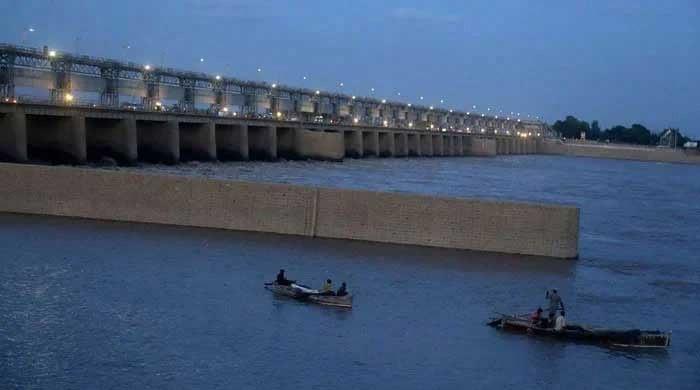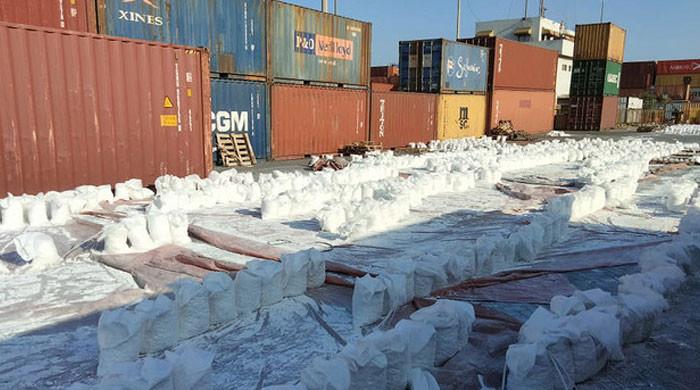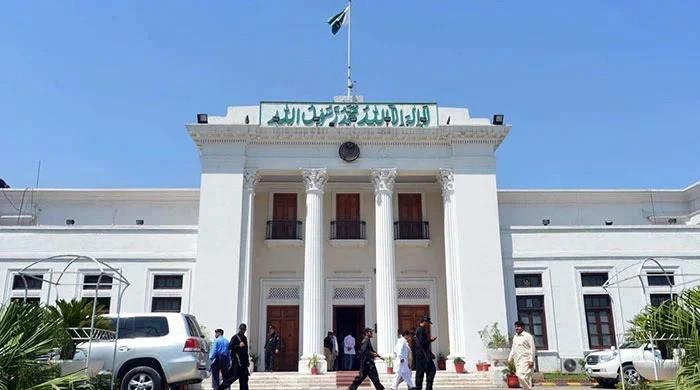India can't stop Pakistan's water
Treaty has survived previous wars in 1965, 1971, and 1999 — it was never suspended or terminated
April 25, 2025
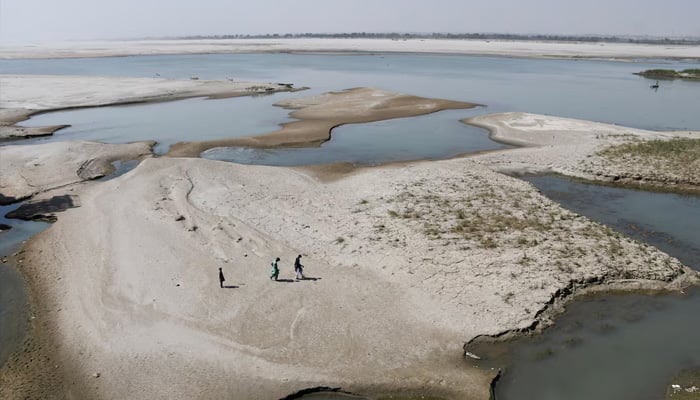
There's been a controversy going on in Pakistan for several weeks now. The core issue is that in Punjab, under the control of the SIFC and their vision, the Green Pakistan Initiative, a canal irrigation system is being built on the Sindh River, to irrigate the lands in the Cholistan area.
This has caused a major backlash in Sindh. A large cross-section of Sindh’s society — including businessmen, intellectuals, civil society members, writers, and lawyers — is strongly opposing it. The Sindh-Punjab border has been shut down for days, and protesters are staging sit-ins, demanding that the government withdraw the canal construction project.
While these water tensions are rising in Pakistan, there's news that India has taken a harsh step by suspending the Indus Waters Treaty after the Pahalgam terrorist attack, which India is blaming on Pakistan. However, I believe India still can’t stop Pakistan’s share of water from the Indus Waters Treaty, which was signed in 1960, for reasons of both international law and realpolitik.
The treaty has survived previous wars in 1965, 1971, and 1999 — it was never suspended or terminated. The World Bank is the main broker and guarantor of the treaty. The move to suspend the treaty is more about political posturing to please India’s domestic audience. If India tries to block Pakistan’s water, it would seriously impact millions of people in Pakistan.
The Modi government had also in 2019 started threatening Pakistan, and just like last time, is now too simultaneously building up domestic political support by announcing that it will stop Pakistan’s water. This announcement is a facade. Under the Indus Waters Treaty, three rivers – Sutlej, Beas and Ravi – already belong to India and they can be used exclusively by India.
Now, since India can’t use its share, it flows over to Pakistan naturally, and there is not much India can do to even stop water from these three rivers, let alone the three rivers that are Pakistan’s exclusive share – the Indus (Sindh River), Chenab and Jhelum. In any event, it would take years for India to build projects to divert even the residual share of the water, let alone the water that is already Pakistan’s share. It cannot happen overnight.
Six rivers flow into Pakistan from India, and under the Indus Waters Treaty, three rivers have been assigned to each country for exclusive use. If India tries to stop water to Pakistan, it would not be the first time it would have violated the provisions of the Indus Waters Treaty
In the 1990s, India constructed a hydroelectric plant in Doda district along the Chenab River. This river is one of the tributaries of the Indus River and was designated by the Indus Waters Treaty for use by Pakistan and has affected the mainly agrarian economy of Pakistan. Similarly, the Indian move to construct a hydroelectric plant along the Kishanganga River is a violation of international law, and specifically the Indus Waters Treaty.
International law provides a binding set of legal rights and obligations on both upper and lower riparian states in the context of water sharing. The position of customary international law for cross-border freshwater resources, such as rivers and lakes, directs towards equitable distribution and the codification of customary international law in the form of the Madrid Declaration of 1911. It clearly provides that one state cannot unilaterally alter fresh water resources to the detriment of another state where that fresh water resource may follow without its consent.
In the same vein, the UN Convention on the Law of the Non-Navigational Uses of International Watercourses reinforces the principle of international law that if a state shares an international watercourse with other states, it may only utilise it in a manner that is based on equitable and reasonable utilisation and participation.
Therefore, when international law is applied to the Indus River’s water, India is prohibited as an upper riparian state to stop in any way whatsoever, delay or divert waters of the rivers to the detriment of the state of Pakistan without its consent.
But international law has been violated by states before. The record of India, especially in relation to Pakistan, is one of an outlaw of international and bilateral agreements. So, can India block Pakistan’s water? Precedent suggests it can. However, would India block Pakistan’s water? It would not.
First, blocking Pakistan’s water would result in a blow to the image that India is trying to maintain as the saner state at the global level, one that has already been dented by the Kulbhushan Jadhav case and unfounded allegations on Pakistan post the Pulwama attack and now the Pahalgam attack without any evidence.
In case India does block Pakistan’s water, it would only be to Pakistan’s benefit, where it would be seen as the more legitimate state suffering from the hands of a self-assumed regional hegemon. It would have diplomatic consequences, and with India continuing to try to isolate Pakistan diplomatically, asking for a permanent position at the UN Security Council and the Nuclear Suppliers Group, India’s aim would be inordinately compromised.
Yet there’s more reason India would bleed itself should it decide to block Pakistan’s water. After the Uri attack in 2016, the Modi government threatened to scrap the Indus Waters Treaty and stop the flow of water to Pakistan. Amid these tensions between India and Pakistan, China blocked a tributary of the Brahmaputra River in Tibet, which resulted in severely impacting water flows in India.
This was done as part of the construction of China’s most expensive hydro Lalho project. If India does in fact attempt to block Pakistan’s water, it would have no face to protest the violations of its water rights by China.
Pakistan and India are both mainly agrarian economies, and water disputes would hurt the economic development of both. India would never block Pakistan’s water — not only because it would be a violation of international law, but also because of diplomatic consequences. And it is time it realises why it is so important to act in accordance with the Indus Waters Treaty.
It has no right to unilaterally suspend the treaty and run away from its obligations — nor does it have the necessary infrastructure to do so.
The writer is a barrister.
Disclaimer: The viewpoints expressed in this piece are the writer's own and don't necessarily reflect Geo.tv's editorial policy.
Originally published in The News




